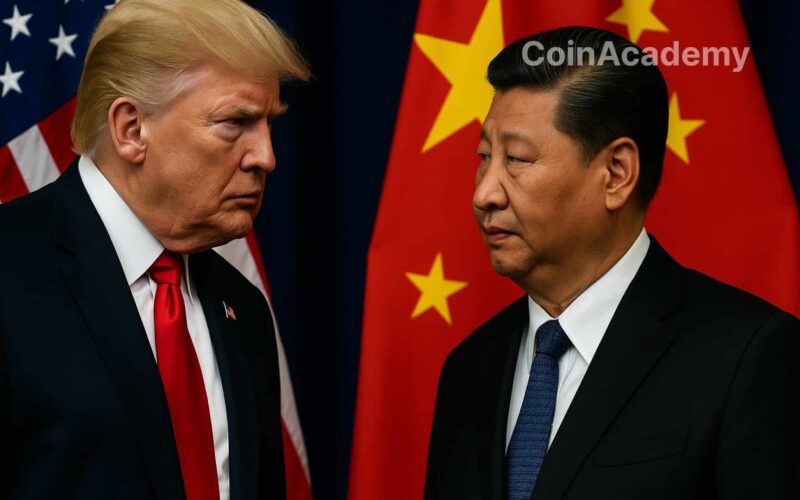L’Administration Trump Considers Reducing Tariffs on China
The Trump administration is reportedly considering a significant shift in its trade policy towards China, planning to reduce the imposed customs duties by more than half. The aim is to defuse a trade war that is weighing heavily on the markets and destabilizing diplomatic balances. While no final decision has been made, one potential option is a hierarchical tariff system with 35% duties on non-strategic products and over 100% on goods considered sensitive to national security. This reform would be implemented over five years. Despite internal tensions in Washington, influential voices like Scott Bessent advocate for a two to three-year agreement, while the European Union remains alert to the risks of trade imbalances.
A Strategic Shift in Washington
The Trump administration is on the verge of a significant shift in its trade policy towards China in order to defuse the trade war that is adversely affecting the markets and diplomatic relationships. According to sources cited by the Wall Street Journal, the White House is considering reducing the tariffs imposed on China by more than half. No final decision has been made, but one option is a hierarchical tariff system, with higher duties on sensitive goods relating to national security. President Donald Trump confirmed a reduction was on the table but stated that tariffs would not be eliminated entirely. The positive response from the markets was immediate, with US indices rebounding and Bitcoin surging in anticipation of de-escalation.
Peking Cautiously Welcomes the Proposal
China, while prudently welcoming the proposal, condemns the abusive use of tariffs by the United States, seeing it as a strategic retreat under economic pressure. Beijing remains open to dialogue but rejects negotiations under threat. Wang Yi, Chinese Foreign Minister, criticized the US for its abuse of tariffs, asserting that this stance has isolated Washington on the international stage.
Internal Pressures and Fragile Balances
In Washington, tensions are running high. According to the Wall Street Journal, White House lawyers looked into the legal possibility of firing Federal Reserve Chairman Jerome Powell, an option that was ultimately dismissed after objections from influential figures, including Scott Bessent and Howard Lutnick. Bessent, an economic adviser to the administration, believes there is a significant opportunity for a trade agreement between Washington and Beijing that will require time, possibly two to three years. He also rejected the idea that Trump had made a unilateral offer to reduce tariffs. While cautious about the outcome of the discussions, Bessent stated, ‘America First does not mean America Alone,’ and sees this phase as a new way to engage with China. The European Union is closely monitoring the progress of negotiations, with Commissioner Valdis Dombrovskis warning that if no compromise is reached with the US, the EU will retaliate with its own countermeasures.
A Global Commerce in Search of Balance
With tensions, adjustments, and statements, one thing is certain: the Sino-American trade war is at a turning point. In a context of global economic slowdown and geopolitical instability, the US strategy may enter a phase of rebalancing without relinquishing its hegemonic ambitions.




